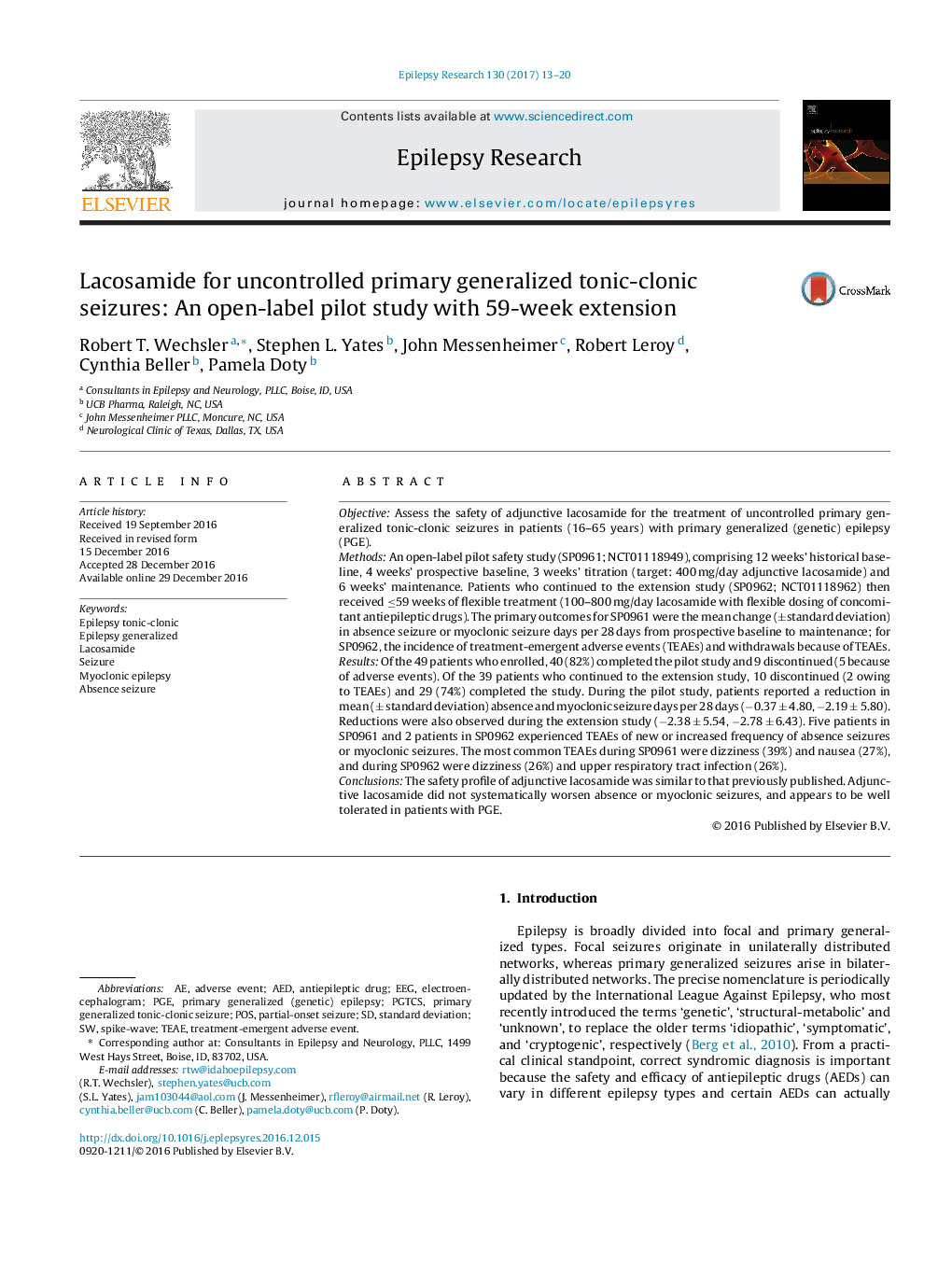| Article ID | Journal | Published Year | Pages | File Type |
|---|---|---|---|---|
| 5628749 | Epilepsy Research | 2017 | 8 Pages |
â¢Adjunctive lacosamide did not systematically worsen absence or myoclonic seizures.â¢During the 2 studies, few patients reported seizure-related adverse events.â¢Common adverse events were similar to those noted in patients with focal epilepsy.
ObjectiveAssess the safety of adjunctive lacosamide for the treatment of uncontrolled primary generalized tonic-clonic seizures in patients (16-65 years) with primary generalized (genetic) epilepsy (PGE).MethodsAn open-label pilot safety study (SP0961; NCT01118949), comprising 12 weeks' historical baseline, 4 weeks' prospective baseline, 3 weeks' titration (target: 400 mg/day adjunctive lacosamide) and 6 weeks' maintenance. Patients who continued to the extension study (SP0962; NCT01118962) then received â¤59 weeks of flexible treatment (100-800 mg/day lacosamide with flexible dosing of concomitant antiepileptic drugs). The primary outcomes for SP0961 were the mean change (±standard deviation) in absence seizure or myoclonic seizure days per 28 days from prospective baseline to maintenance; for SP0962, the incidence of treatment-emergent adverse events (TEAEs) and withdrawals because of TEAEs.ResultsOf the 49 patients who enrolled, 40 (82%) completed the pilot study and 9 discontinued (5 because of adverse events). Of the 39 patients who continued to the extension study, 10 discontinued (2 owing to TEAEs) and 29 (74%) completed the study. During the pilot study, patients reported a reduction in mean (± standard deviation) absence and myoclonic seizure days per 28 days (â0.37 ± 4.80, â2.19 ± 5.80). Reductions were also observed during the extension study (â2.38 ± 5.54, â2.78 ± 6.43). Five patients in SP0961 and 2 patients in SP0962 experienced TEAEs of new or increased frequency of absence seizures or myoclonic seizures. The most common TEAEs during SP0961 were dizziness (39%) and nausea (27%), and during SP0962 were dizziness (26%) and upper respiratory tract infection (26%).ConclusionsThe safety profile of adjunctive lacosamide was similar to that previously published. Adjunctive lacosamide did not systematically worsen absence or myoclonic seizures, and appears to be well tolerated in patients with PGE.
